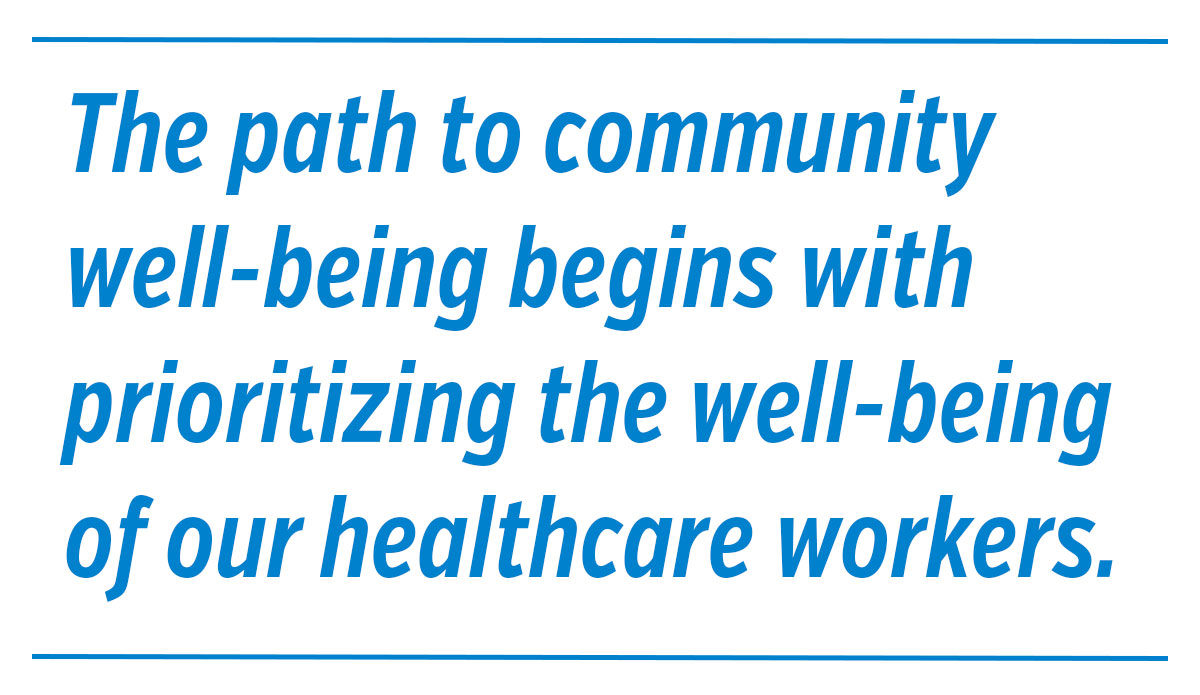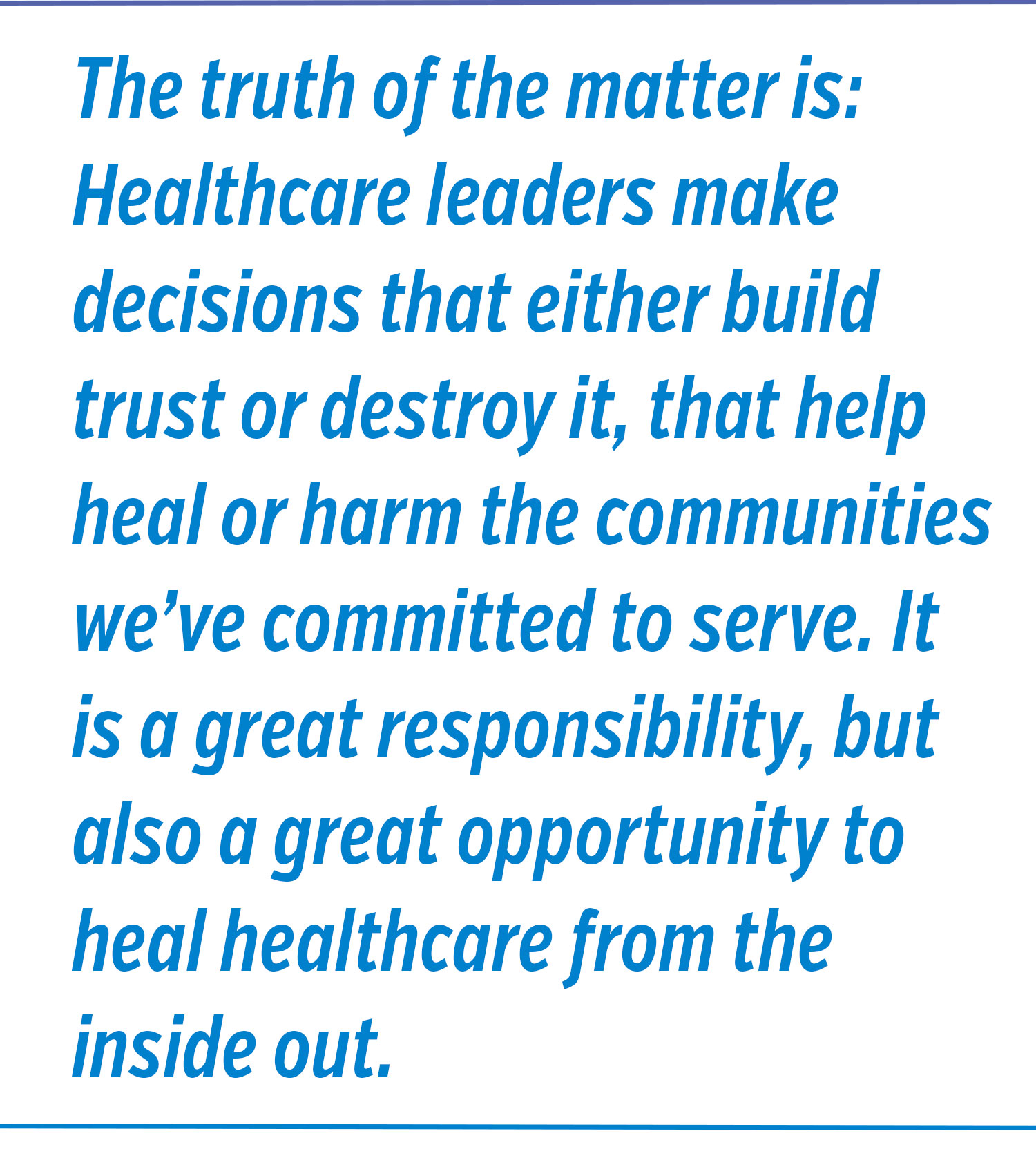An abbreviated version of this op-ed appeared in the May 26 edition of The Asheville Citizen Times.
At its core, healthcare is a trusting relationship — people serving people, people working together, people trusting one another. Not only is trust the foundation of relationships between patients and providers, but it also underpins internal relationships among coworkers and between employees and management. Trust drives patient outcomes, which drive public health.
In recent years, for a variety of internal and external reasons, this foundational trust in healthcare has taken a hit. But, together, we can rebuild. It won’t be easy, but it must be done. Our collective health depends on it.
Much like in medicine, the first step of treatment is proper diagnosis: What has caused this injury to the system?

It’s no surprise that the pandemic wreaked havoc on trust in all directions. It brought the painful, humbling realization that we were all grossly unprepared for a global pandemic. When patients don’t trust that they are safe to seek medical care, they forego that care. When healthcare systems can’t source the protective equipment needed to support and protect their workers, who are battling a life-threatening contagious virus, employees lose trust. When systems are overburdened with no alternative means of assistance, leaders lose trust. The list of perils and their inevitable impacts goes on and on.
Likewise, the pandemic brought a host of internal issues to healthcare organizations, exacerbating employee burnout and fueling an accelerated exodus of healthcare workers from the industry — one that is projected to get much worse without serious intervention.
An article published in “Mayo Clinic Proceedings: Innovation, Quality, and Outcomes” revealed burnout from excessive workloads and administrative burdens, the fear of infection during the pandemic, and anxiety and depression from chronic stress strongly correlated with workers’ intentions to either reduce their work hours, change employers or leave the field entirely.
Before change can happen on the patient level, those of us in power must first prioritize our staff, addressing the industry-wide shortcomings that have exacerbated issues across the whole system. The relationship between healthcare workers and the healthcare industry requires our action now.
So, what can we do?

The path to community well-being begins with prioritizing the well-being of our healthcare workers. What that looks like in practicality is making financial investments in staffing support, skills development, work environments, administrative technology, and resources that foster the well-being of our people. It’s hard to believe looking back on it, but in the height of the pandemic, many systems spent countless hours sending faxes, because it was a primary technology used to communicate the barrage of test results — frustrating staff and patients alike. Today, inefficiencies like these still exist in all of our organizations, and they take up a larger percentage of time and expense (financial and mental) than any of us in healthcare can afford.
The truth of the matter is: Healthcare leaders make decisions that either build trust or destroy it, that help heal or harm the communities we’ve committed to serve. It is a great responsibility, but also a great opportunity to heal healthcare from the inside out.
As Mother Teresa famously said: “I alone cannot change the world, but I can cast a stone across the waters to create many ripples.” When a patient walks through our doors, it is an opportunity to create a ripple of healing in the greater community. Likewise, it is an opportunity to build up the healthcare workers who have committed their lives to healing ours.
None of us can do everything, but all of us can do something. From patients to providers to healthcare leaders, we are all just people serving people, people working together, and people trusting one another.
Let’s heal healthcare together.
Rachel Sossoman is the president and CEO of Mercy Urgent Care, a nonprofit health care organization based in Western North Carolina. With a mission to provide high-quality, affordable and convenient medical services to all, Mercy Urgent Care treats patients with non-life-threatening injuries and illnesses from its eight urgent care centers across the region, with three locations in Asheville and one each in Brevard, Burnsville, Columbus, Waynesville and Weaverville.

